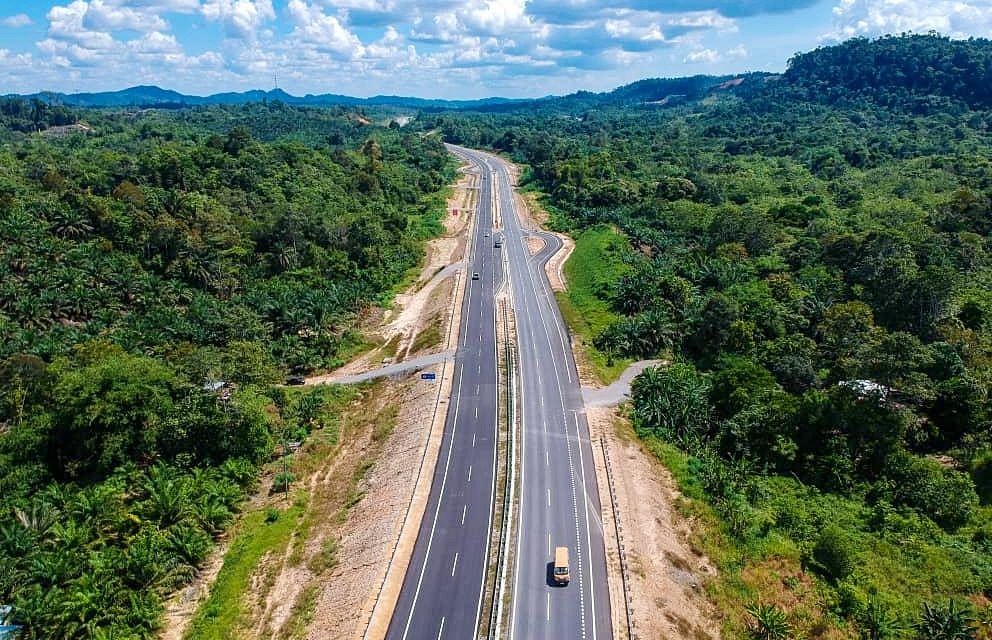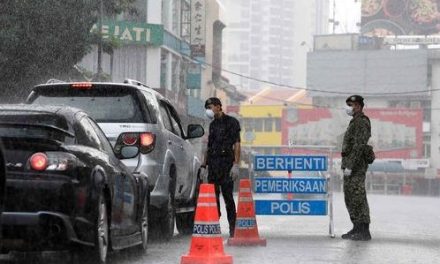Sarawak Pan Borneo Highway PDP termination saves govt RM3.1b
RM3.1 billion in costs could be saved from the termination of the Pan Borneo Highway, Sarawak project delivery partner (PDP) agreement, according to Finance Minister Lim Guan Eng. He said the funds could then be utilised for other infrastructure development projects in the state. With the termination of the agreement effective Feb 20, Lim said the financial implications for the implementation of the project would be reduced by 14%. On Sept 20 last year, the Federal Works Ministry issued a notice of termination to Lebuhraya Borneo Utara Sdn Bhd, the PDP for the Sarawak portion of the Pan Borneo Highway project. Launched in March 2015, the mega project which would potentially link the two East Malaysian states was regarded as the biggest infrastructure development endeavour being implemented by the federal government in Sarawak in 54 years. (The Sun Daily)
‘RM7.8b of outstanding GST refunds yet to be returned’
Some RM7.8 billion of outstanding refunds for the goods and services tax (GST) have yet to be repaid to taxpayers, causing cash flow of businesses to be negatively impacted, said the Federation of Malaysian Manufacturers (FMM). Its president Tan Sri Soh Thian Lai said the reimbursement of the outstanding amount, based on February 2020 numbers by the Royal Malaysian Customs Department, is delayed as it is required to conduct field audits first. The FMM’s statement came after Finance Minister Lim Guan Eng said yesterday that his ministry has been tasked to prepare a stimulus package and that a multi-ministry discussion would be held to obtain feedback before formulating the package. As at Feb 28, 2019, a total of RM4 billion in GST claims had been paid involving 54,603 accounts registered with Customs. (The Edge)
‘No land reclamation involved in Penang Bay development’
The proposed “Penang Bay” development project will not involve any land reclamation, said Chief Minister Chow Kon Yeow. Chow told NST that the plan was to spruce up the wharf areas on the island and mainland. “There will be no development in the waters linking the island and mainland. We are looking at only developing the shore areas. More importantly, there will not be land reclamation involved. We have a massive reclamation plan for the southern part of the island. That’s it. No more, especially in Penang Bay development.” On Saturday, Chow announced that the Penang government would present to the world its idea on developing Penang Bay at the 10th World Urban Forum (WUF) in Abu Dhabi next week. “We hope to find synergy between the bay areas — Penang island and Butterworth. We plan to turn the island side into a cultural hub and the mainland side into an innovative hub. We also hope for investment opportunities, for those who want to come and help us here,” he said. (NST Online)
Economic impact of coronavirus temporary — MIDF Research
The economic impact of the novel coronavirus (2019-nCoV) is expected to be temporary based on the previous experience with Severe Acute Respiratory Syndrome (SARS), according to MIDF Research. The research house, which is maintaining its 2020 GDP growth forecast for Malaysia at 4.5%, said the virus would not impact the economy directly, but indirectly through external trade and investment. It noted that China is Malaysia’s largest trading partner, accounting for about 17% of trade. Besides retaining its GDP forecast, the research house also maintains its 2020 export and import forecasts at 1.5% and 0.8%, respectively. (The Edge)
Touch ‘n Go RFID tag fitment will cost RM35 from Feb 15
Touch ‘n Go has announced that from Feb 15, its RFID tags will be priced at RM35 for purchase at fitment centres nationwide. Currently, the RFID tag fees are waived as part of a pilot programme to encourage sign-ups that began in 2018. The RM35 purchase comes with a free first-time replacement on the same vehicle for when users need to get a new RFID tag. The company’s RFID registration website currently has three fixed fitment centres listed at locations in Selangor and Kuala Lumpur. The RFID tag is placed on a user’s car windscreen or headlamp. Embedded with a radio-frequency chip, the tag is used as an electronic payment system when going through toll plazas. The RFID system is now live for all Class 1 vehicles in 22 highways including the Ampang-Kuala Lumpur Elevated Highway (AKLEH), Penang Bridge (JPP) and Lebuhraya Damansara-Puchong (LDP). The RFID tag can be linked to the company’s eWallet where the app can be used for online reloads. (The Star Online)






